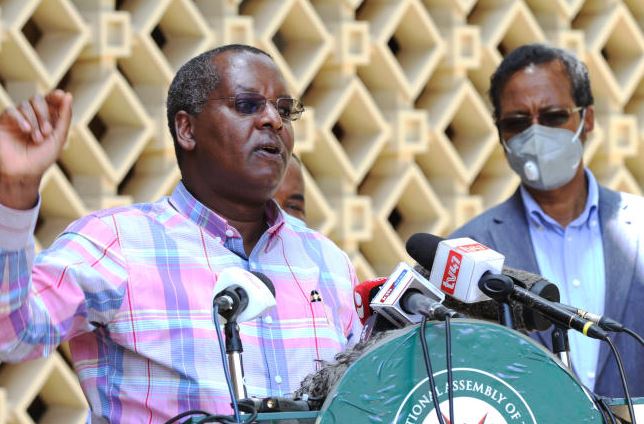×
The Standard e-Paper
Home To Bold Columnists

National Assembly Majority Leader Amos Kimunya with Eldas MP Adan Keynan at t Parliament buildings, Nairobi. [Elvis Ogina, Standard]
The High Court will on Thursday rule on Building Bridges Initiative (BBI) petitions, to determine whether the Constitutional Amendment Bill (2020) shall proceed or not.